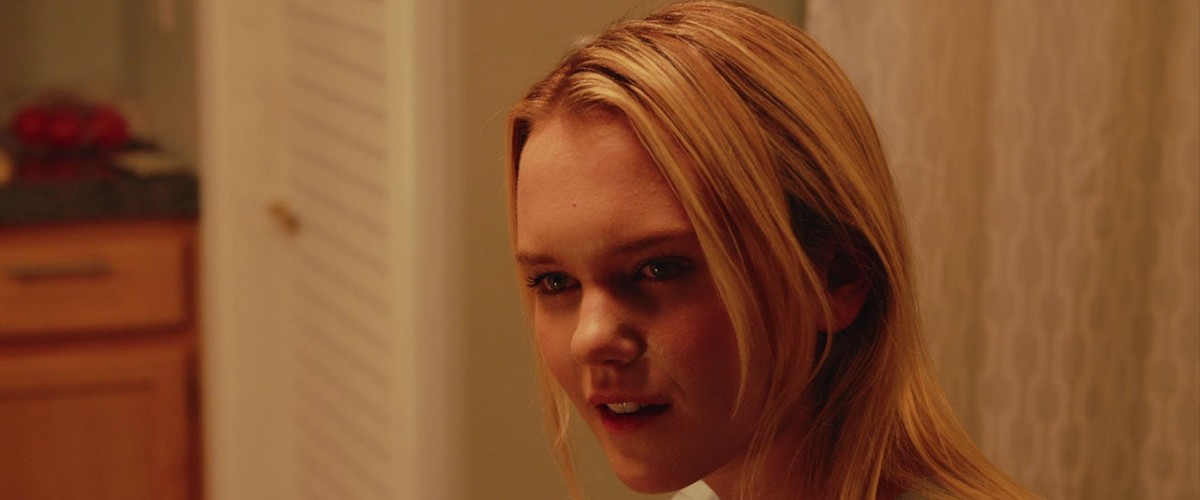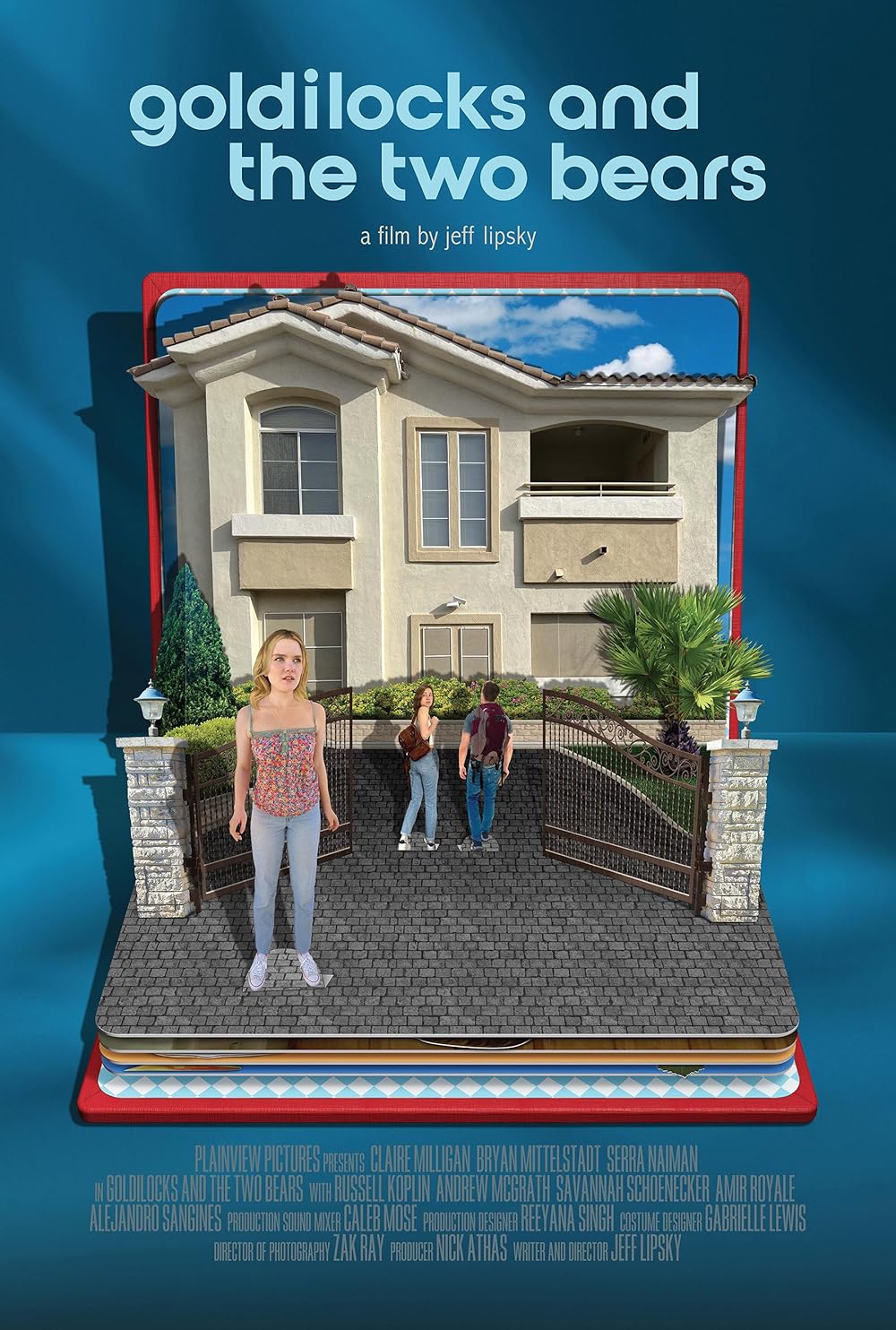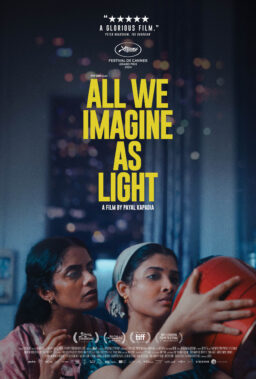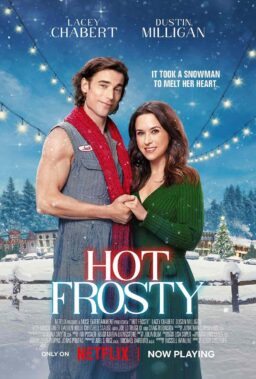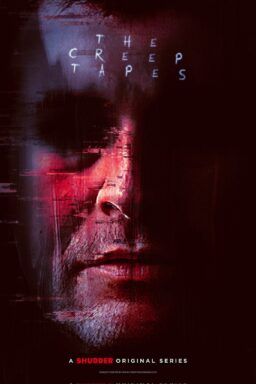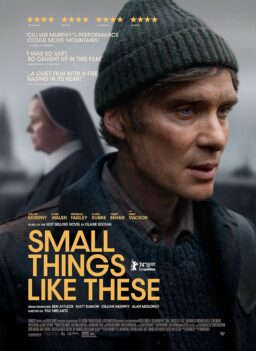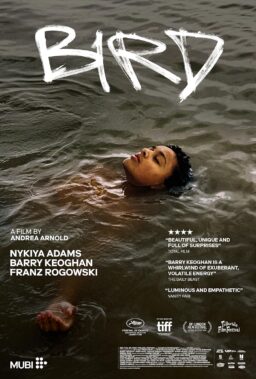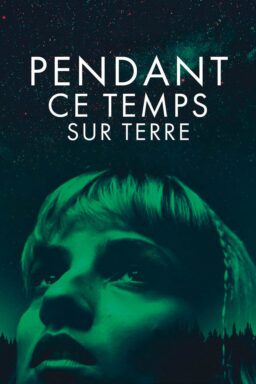In Jeff Lipsky's films, it's normal for characters to talk for ten minutes straight, and it's normal for other characters to listen without interrupting. You have to just go with the convention. Or, not. You don't "have" to do anything. If a director doesn't establish a context and style, if the actors aren't skilled enough to pull it off, if the audience is given enough time to think "Wait, what is this person babbling on about?" ... the thing unravels. "Goldilocks and the Two Bears" starts unraveling with the first unmotivated monologue and falls apart from there.
Ivy (Claire Milligan) arrives in Las Vegas to start college. She is sharing a condo with her grandmother and finds two squatters holed up there, Ian (Brian Mittelstadt) and Ingrid (Serra Naiman). Ivy is terrified, but doesn't call the police. Instead, she takes a long walk with Ingrid, and the two swap lengthy monologues. Then they go back to the condo. A fully naked Ian pees in the toilet and stares at Ivy as she walks by the door. Ivy is not freaked out. Instead, she is titillated.
So far so Goldilocks.
Ingrid is a (former?) junkie, and she doesn't shave her armpits. These are her distinguishing characteristics. Ian barely speaks, and when he does, he says things like: "It was one week after receiving my first blowjob that I decided to become a philosophy professor." There's unconvincing sexual tension between Ivy and Ingrid, and they end up fooling around while simultaneously referencing Immanuel Kant. Ivy giggles as she fingers Ingrid, "There's one too many Germans in bed with us."
Directors present their fascinations for their own particular reasons. Howard Hawks created a certain type of female protagonist so distinct she is referred to as "The Howard Hawks Woman". Lars von Trier wears his obsessions on his sleeve. So did Alfred Hitchcock. So did John Cassavetes, Chantal Akerman, Ingmar Bergman. These directors are obsessed with women, and they made art out of it. Lipsky is equally obsessed but can't manage the art part of it. Instead, we have naked young women talking about stereotypically male-centric Boomer cultural references, like Henry Miller and the Three Stooges, while never being convincing they know about any of these things. These women are lip-synching to Lipsky. It would have been refreshing if Ivy were a happy bimbo.
Ian owns four books: William Shirer's Rise and Fall of the Third Reich, Joseph Heller's Something Happened (Catch-22 is obviously too popular for such a rarified mind), the Portable Dorothy Parker, and finally, a slim book called Men and Menstruation, by David Linton. I looked up the last one. Here's the description: "Though a biological characteristic, menstruation is also a complex social construction, one that men play an active role in creating via a process of 'menstrual transactions.' This book explores the means by which menstruation is given meaning through an examination of a wide variety of such transactions." I menstruate and no man plays an "active part" in the process. This confirms my suspicion after seeing Lipsky's "Mad Women", that Lipsky can't get over the gobsmacking fact that women menstruate and excrete waste. How can women do this while also being sexually attractive to him?
Ingrid reveals she is HIV+. Her sister is trying to get her into a clinical trial, and there's discussion of antiretrovirals and a possible vaccine. The film takes place in 2016 (for some reason), but the HIV dialogue sounds like it's from 1997 when these clinical trials were mainstreamed. (A friend of mine was in the first clinical trial of the antiretrovirals in 1996.) The HIV plot point is a problem mainly because it is a plot point, although I'm not sure what the plot is. It ends up trivializing the issue as well as confusing the history of HIV treatment.
In many ways, the film is a Woody Allen pastiche, or just Woody Allen fanfic, without Allen's sense of humor. Ivy is supposed to be wise beyond her years, just out of the teenager stage, but still with enough wherewithal - and financial means - to have rented what she calls a "sex apartment" for hookups with this one guy. Plausible? I suppose. But not as Ivy is presented here by Milligan, who says everything with a small childish laugh behind her voice. Whether or not you "get" or even like Allen, his sense of humor undercut the self-seriousness of the characters and there's satire present. Is Lipsky satirizing something? And if so, what?
In the Goldilocks story, Goldilocks enters the bears' home and takes over their belongings. It's one of the most popular fairy tales of all time and can be "read" a number of different ways. Goldilocks could be seen as a colonizer, barging in where she doesn't belong. Go home, Goldilocks. Make your own porridge. Here, it's Goldilocks' home, and the two "bears" have barged in uninvited. You could "read" it as a story of corrupted innocence, but Ivy once rented a sex apartment. Good for her, but it muddies the metaphorical waters. Ian has a beard and Ingrid doesn't shave her armpits or pubic hair (this is referenced in the language and visually). Is Lipsky's conception as simple as: Ivy is blonde and smooth, and the other two are hairy like bears? Aren't metaphors supposed to lead somewhere else?
"Goldilocks and the Two Bears" is probably supposed to be "provocative," "shocking," and "playful," the title being what it is. The film is none of these things. I'm not in academia, but I am an educated, liberated woman, and even I Kant figure this out.
